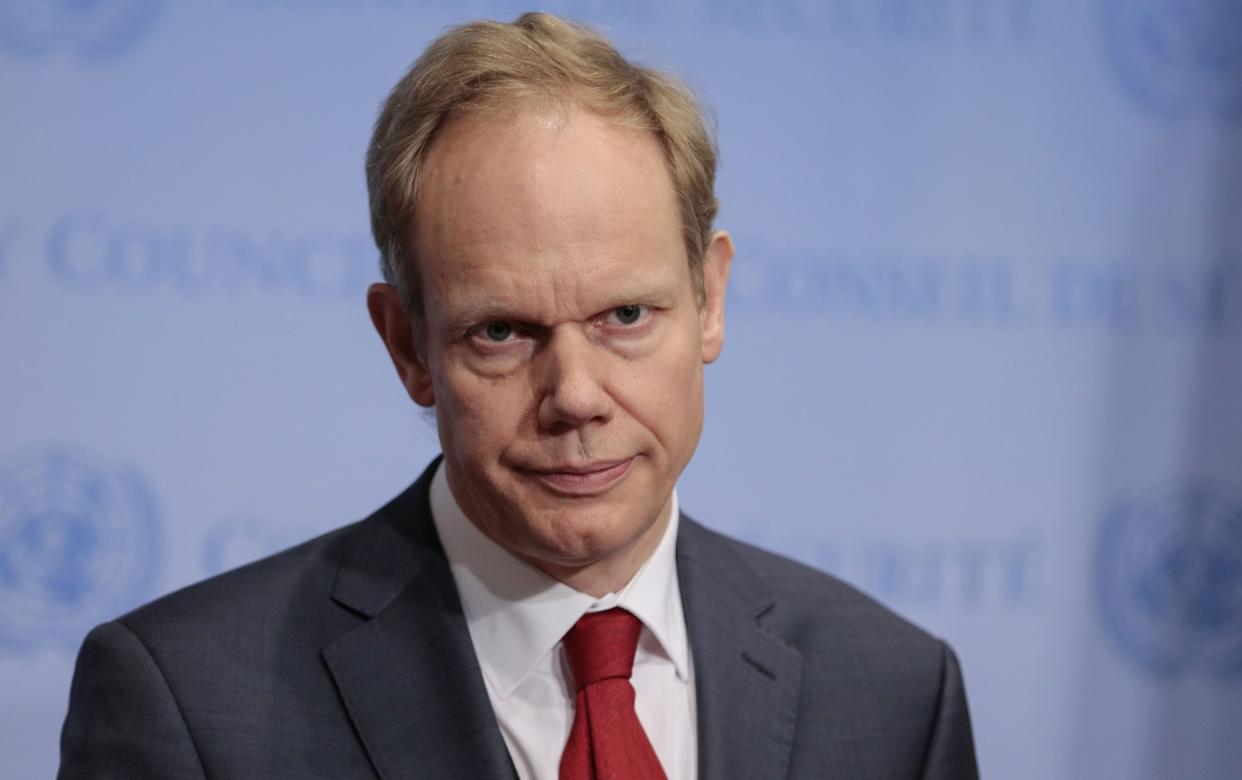‘No plan B’ if Rwanda scheme fails, Home Office admits

The top civil servant at the Home Office has admitted it does not have a “plan B” if the Government fails to get its Rwanda policy off the ground.
Sir Matthew Rycroft, the permanent secretary at the Home Office, said civil servants were doing “all sorts of contingency planning” but he would not call it a plan B because ministers had not agreed to such a scheme.
His comments come as the Government attempts to salvage its Rwanda deportation plan after it was declared unlawful by the Supreme Court.
No 10 is working with the Home Office and Victoria Prentis, the Attorney General, on a new treaty and Bill to satisfy the court, which had concerns that the Rwanda plan is unsafe because of the risk that asylum seekers sent there from Britain could be returned to their home countries and then persecuted.
The Bill – which will bar any removals of asylum seekers from Rwanda once they are moved there, except to the UK – will declare Rwanda safe but faces fierce opposition in the Lords, especially if Rishi Sunak decides to exempt asylum from domestic and international human rights laws.
Asked at the Commons home affairs committee if there was a plan B, Sir Matthew said: “We do all sorts of contingency planning the whole time. There’s lots of planning going on, but I wouldn’t want to call it a plan B.
“That would sound as though there’s some very specific thing that ministers have already decided, because they haven’t done, and when they do they will make the announcements in real time.

Asked again if the Home Office was working on a plan B, he replied: “We’re working on lots of ways to stop the boats.”
He said that the contingencies included measures in the Illegal Migration Act, which gives ministers powers to detain and deport illegal migrants to their homeland or a third, safe country, talks with other governments on returns agreements and Rwanda-style schemes, and “upstream” work to tackle people smugglers on Europe’s borders.
He said negotiations on the new treaty were in their “final stages”, with officials in Kigali currently applying the “finishing touches”.
The Prime Minister is aiming for the first flights to Rwanda to take off in the spring.
Sir Matthew hinted that more cash could be paid on top of the £140 million already committed but would not say if any additional payments had been made, instead saying ministers had decided they would not reveal such information until the summer.
He said: “There are additional payments each year, and ministers decided that the way to keep you and other colleagues in Parliament updated is once a year to set out the total additional payments to the government of Rwanda and we will do that in the annual report and accounts.”
“So the figures that you set out, the £120 million plus the £20 million, are the payments from the 2022-23 financial year and then any payments in 23-24 we will announce in the normal way in the next annual report.”

Tim Loughton, a former minister, also raised concerns about the large increase in the number of asylum claims being withdrawn because of the alleged failure of claimants to respond to calls to interview or correspondence.
Home Office figures showed that the number of asylum claims withdrawn had risen 307 per cent to 17,316, in the year to September 2023, which led to allegations that it had been “cooking the books” to clear a backlog of cases, with concerns that was raising the risk of migrants disappearing in the community.
Asked by Mr Loughton whether he knew what had happened to the asylum seekers after withdrawal, Simon Ridley, Sir Matthew’s second in command, told MPs: “In most cases, I don’t know where those people are.”
Mr Ridley later corrected himself, saying there were records enabling Home Office immigration officers to take enforcement action to bring in and remove people from the UK.
Several MPs expressed their exasperation at the lack of detail that Sir Matthew and Mr Ridley were able to provide.
Following a series of exchanges on various subjects, including Channel crossings and removing failed asylum seekers from the country, Dame Diana Johnson, the committee chairman, asked: “Do we have any figures about anything?”
Lee Anderson, a member of the committee, later added: “I find this absolutely staggering that the big boss hasn’t got a clue, not just on this question but nearly every other question we’ve asked today. Why is that?”
Sir Matthew replied: “Mr Ridley is looking for the numbers and we will send them to you.”
On Tuesday evening, James Cleverly, the Home Secretary, told MPs that other countries were ready to provide Rwanda-style schemes if the deportation agreement with the central African nation proves workable.

